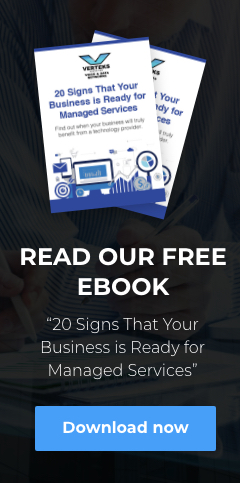It has always been difficult to keep documents up-to-date and ensure that everyone on your team has the right version. Now that many employees are working remotely and sharing documents via mobile devices, the problem has only become more acute.
Cloud-based file-sharing services such as Dropbox, iCloud and Google Drive seem to provide a simple solution. These consumer-grade services enable users to access documents from anywhere and sync them across multiple devices. Employees can also share information with people outside the organization, which is particularly useful for files that are updated frequently or too large to email.
Employees often set up accounts with these services without consulting the IT department or getting management permission. And to be honest, many smaller organizations tolerate or even encourage the use of cloud-based file-sharing because it’s inexpensive (often free) and easy to use.
Trouble is, these services were designed for consumers to share photos and videos. Although they claim to be secure, they put sensitive company data at risk.
What Could Go Wrong?
When employees set up an account with a cloud-based file-sharing service, their employers typically have little to no knowledge of what files are being shared. In many cases, employers have no idea these accounts even exist. The organization has lost control of the information stored in the cloud, greatly increasing the risk that data will be lost or compromised.
User error becomes a big problem. An employee may give a business partner access to the shared file space to facilitate the transfer of documents for a particular project. However, employees may provide the business partner with greater access than needed, then forget to revoke that access after the project is complete. Not surprisingly, these kinds of errors account for more than a quarter of all data breaches, according to IBM.
Cloud-based file sharing is a challenge for IT groups because they have to manage more data stored outside the data center. And for organizations that must comply with government and industry regulations, consumer-grade services are generally inappropriate.
Business-grade file-sharing solutions provide IT with administrative control over the platform. IT manages user credentials and sharing permissions, and the platform maintains an audit trail of file access. Temporary passwords and expiring links can control third-party access to files, while encryption can virtually eliminate the risk of data leaks and regulatory compliance violations.
How to Avoid File-Sharing Risks
Simply banning the use of cloud-based file-sharing isn’t the answer. Employees need to easily access and share files and will adopt tools that allow them to do that — with or without company approval.
The best way for organizations to prevent the use of consumer-grade cloud-based file-sharing is to provide employees with an alternative. A business-grade file-sharing solution can provide the same convenience and flexibility as consumer-grade options while providing security, visibility, manageability and control.
When choosing a business-grade file-sharing solution, there are a number of things to consider:
- Ease of use. “Drag-and-drop” functionality helps encourage adoption of the solution while enhancing collaboration and streamlining workflows.
- Existing platforms and devices. The file-sharing solution should work seamlessly across your environment to maximize productivity.
- Simple administration. A cloud-based solution eliminates complex deployment and ongoing management headaches.
Verteks can help you evaluate, select and implement a business-grade file-sharing solution that balances simplicity and cost-efficiency with security and regulatory compliance requirements. Let us help you eliminate the risks associated with consumer-grade services while providing your staff with a convenient means of sharing and accessing files.




